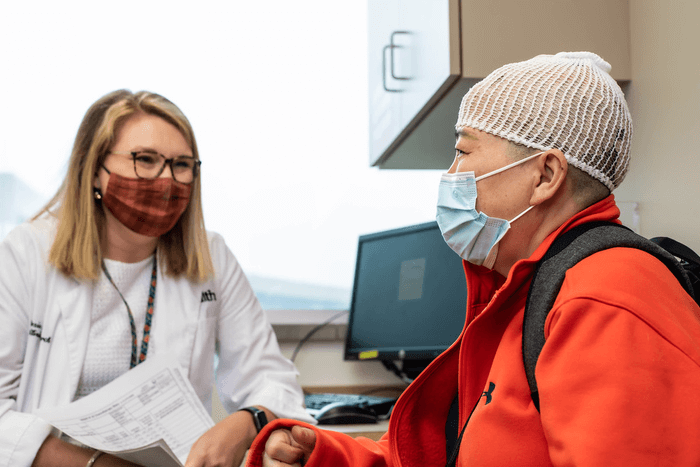A new study brings hope to the millions of people living with brain cancer. Researchers from the University of Cincinnati found that manipulating the electricity used by cells could be used to treat a deadly brain tumor known as glioblastomas.
Human cells use electricity to line up materials called mitotic spindles to prepare them for cell division and growth. By creating an electric field to counteract the cell’s electricity, researchers could target and block tumor growth. The treatment is given through a set of electrodes called electrical arrays that are worn as a cap over the head.
“These arrays point the electric fields at the area of the brain tumor,” says Dr. Kyle Wang, a radiation oncologist and assistant professor at the UC College of Medicine, in a university release. “It’s been shown to actually improve how many people survive this disease.”
The mesh cap known as the Optune device is worn for at least 18 hours a day. The longer the device is worn, the more likely patients get better treatment outcomes. The treatment is not meant to be worn for the rest of their lives. Rather, patients are encouraged to wear it until they do not want to or it is no longer effective.
The Optune device is currently approved by the U.S. Food and Drug Administration as a treatment for patients with glioblastoma following surgery and radiation and at the same time as chemotherapy treatment. Dr. Wang says that previous research found people who wore the device lived 30% to 50% longer than people who did not have it.
Dr. Wang is leading a new clinical trial called TRIDENT to study if early treatment of the Optune device could lead to better health outcomes. The study plans to enroll 950 patients with half using the Optune device at the same time as radiation treatment and the other half using it at the same time as chemotherapy.
The most common side effects for the Optune device are skin irritation and logistical difficulties.
“It takes a lot of care to figure out how to wear something 18 hours a day that has to plug in to a portable electric source, but every patient that uses the Optune device gets a designated device specialist who makes sure they have almost 24/7 access to questions about how to use this device, how to bring it with them on trips and how to continue living well using this device that’s been shown to improve survival,” Dr. Wang says.
He adds: “It’s been a long time since something was invented that works for this type of disease. It’s really fulfilling to have patients that are looking for other options or basically reasons to have hope. I think this trial as well as the device is one of the more impactful discoveries for glioblastoma in decades.”












